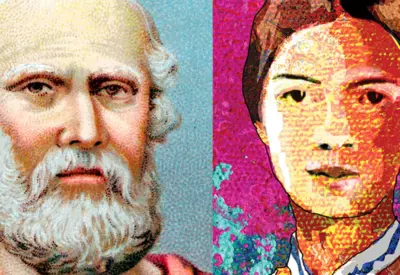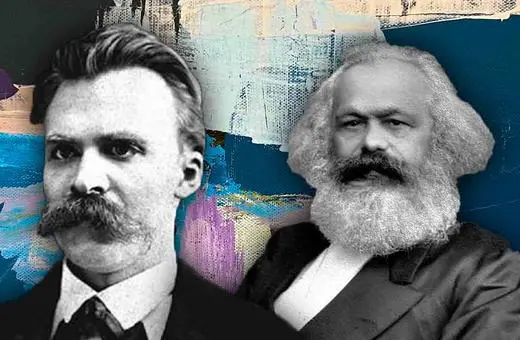When engaging with poetry, readers will often ask what a particular poem means. The implicit assumption, of course, is that it is possible to reword or paraphrase a poem in a manner which somehow preserves its essence. In this article, philosophy professor Stefan Valdemar Snævarr argues that no such paraphrase is possible. Intrinsic to poetry, Snævarr argues, is a reliance on metaphor, ambiguity, and ineffability which ensures that the only way to grasp the essence of a poem is to read the poem itself.
The New Critics were a school in literary studies that emphasized close reading of literary works, especially poems, and tended to regard such works as autonomous. Poems could be understood as objects, largely independent of the intentions of the poet and the responses of the readers.
The non-paraphrasability of poetry was a central tenet of this school: Summarizing or otherwise retelling poems was considered futile. One of the school’s members Cleanth Brooks coined the phrase “the heresy of paraphrase.” Call it “The Heresy Thesis.”
___
An undergraduate once asked the darling of the New Critics, Nobel laureate T. S. Eliot, what he meant by the line “lady, three white leopards sat under a juniper tree.” He purportedly replied, “I meant ‘lady, three white leopards sat under a juniper tree.’”
___
It is said that an undergraduate once asked the darling of the New Critics, Nobel laureate T.S. Eliot, what he meant by the line “lady, three white leopards sat under a juniper tree.” He purportedly replied, “I meant ‘lady, three white leopards sat under a juniper tree.’” The implication, of course, is that the line is not paraphrasable. The New Critic and poet Archibald MacLeish said “A poem should not mean but be” (MacLeish 1964: 1069). Obviously, poems cannot be retold if they only are, but do not mean. They can, however, be meaningful and at the same time impossible to paraphrase satisfactorily.
 SUGGESTED READING
Poetry is philosophy
By Magdalena Ostas
SUGGESTED READING
Poetry is philosophy
By Magdalena Ostas
Why did Cleanth Brooks think that paraphrase is a heresy? He denied neither that poems could be paraphrased up to a point nor that such a paraphrase can be useful in some contexts. What Brooks did reject was the belief that paraphrase could replace a poem or capture its essence. Moreover, attempts at complete paraphrases of poems need metaphors in order to capture their meaning, but these metaphors in turn stand in need of paraphrase. Certainly, many poems contain propositions, which are easily rephrased, but we must not mistake them for the inner core of these poems. Such propositions are justified in the context of the poem as a whole, not in connection with a general paraphrase. Thus, a proposition like John Keats’ “Beauty is truth, truth beauty” gets its precise meaning and significance from its relation to the total context of the poem (Brooks 1968: 157-176).
Brooks was on the right track, but I want to argue in favor of the Heresy Thesis in a somewhat different manner. I shall discriminate between two kinds of paraphrase, the rewording kind and the synopsis type. In the first case, we exchange all or an important part of the words of a poem with other words. In the second case, we make a synopsis of the poem with the aim of capturing its essence.





















Join the conversation